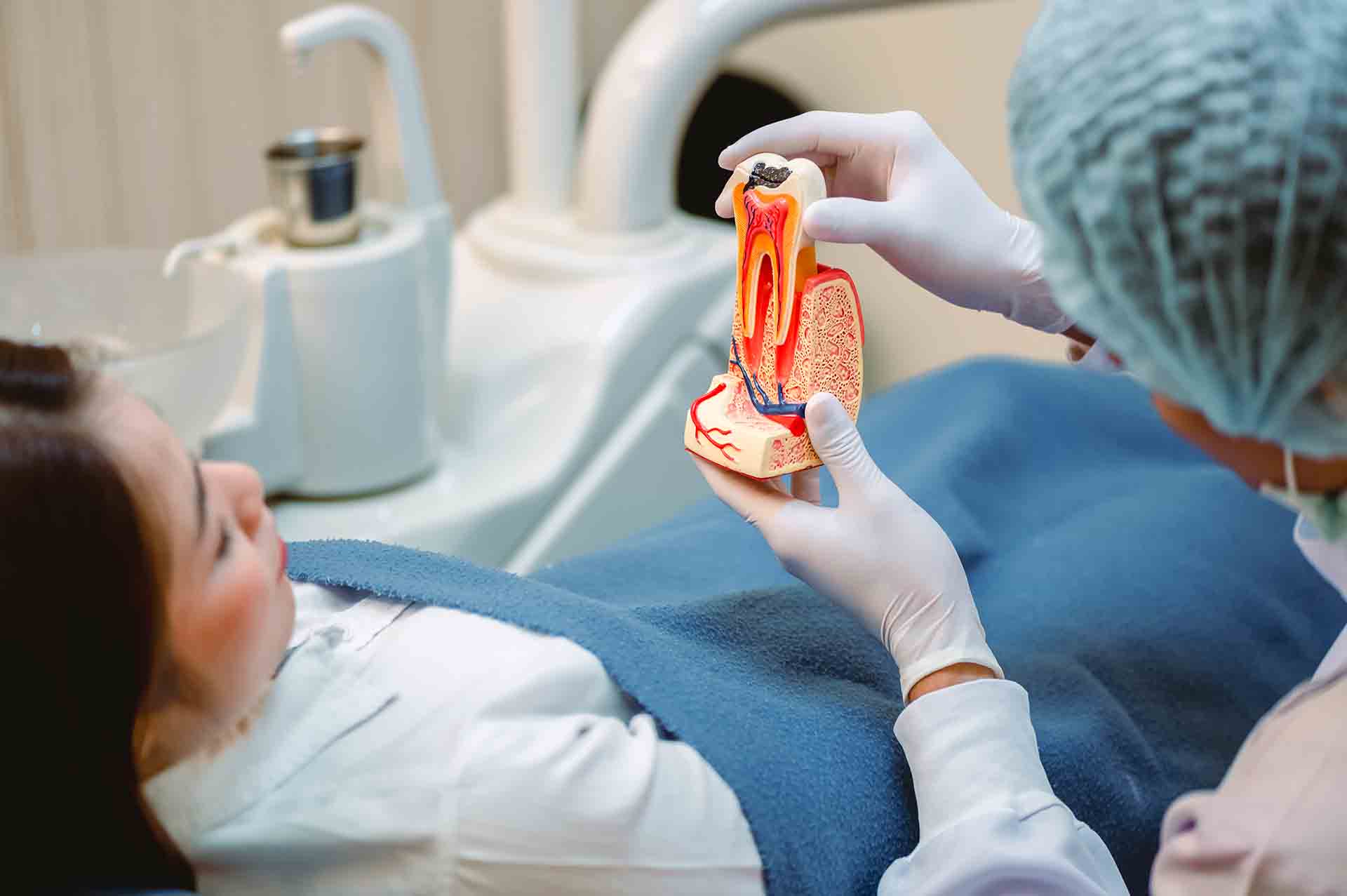
Is a Bridge a Good Option for a Missing Tooth?
May 2025
Did you know that 178 million Americans are missing at least one tooth, according to the American College of Prosthodontists? Tooth loss isn’t just a cosmetic issue and it can lead to shifting of the surrounding teeth, gum disease, and even bone loss if left untreated. So, is a bridge a good option for a missing tooth? Let’s explore whether this popular dental restoration is the right solution for you.
What Is a Dental Bridge?
A dental bridge is a fixed restoration used to replace missing teeth by anchoring a false teeth between two healthy teeth or dental implants. These anchoring teeth, called abutment teeth, are covered with dental crowns that support the artificial tooth in between.
This solution is often chosen for its ability to restore your smile, chewing ability, and proper bite alignment, and to bridge the gap left by the missing tooth.
Without a replacement tooth, the jawbone in that area can begin to deteriorate, leading to changes in your facial structure. A bridge helps maintain the natural shape of your face by providing support where the tooth is missing.
Types of Dental Bridges: What Are Your Options?
There are four main types of dental bridges:
- Traditional Bridge: The most common type, it uses crowns on both sides of the gap.
- Cantilever Bridge: Supported on one side only.
- Maryland Bonded Bridge: Maryland bridges are often preferred for front teeth since they require minimal preparation of the surrounding teeth.
- Implant-Supported Bridge:Implant-supported bridges are ideal when multiple teeth are missing in a row and you want to avoid impacting adjacent teeth.
Each type has specific pros and cons of dental bridges, which you should discuss with your dentist before deciding.
Dental Bridge Cost: What Should You Expect?
Let’s talk numbers. On average, a single tooth bridge may cost anywhere from $500 to $1,200 per tooth. More complex bridges, like a 4 teeth bridge, can range from $2,000 to $5,000 or more. The dental bridge cost without insurance can be significant, but many dental practices offer payment plans or financing options.
Many dental insurance plans cover a portion of the cost, especially for medically necessary restorations. It’s often more cost effective than replacing teeth individually with implants.
It’s important to compare these costs with other options like implants or partial dentures before making a decision.
Advantages of Choosing a Dental Bridge
Still wondering is a bridge a good option for a missing tooth? Here are the major benefits of choosing one:
Fast and Non-Invasive
Unlike implants, which may require surgery and months of healing, dental bridges are relatively quick to place—often completed in 2-3 dental visits.
Reasonable
Dental bridges tend to be less expensive upfront than implants, making them more accessible to patients without insurance.
Aesthetic and Functional
Bridges can restore your smile and improve the ability to chew and speak properly. Plus, they prevent other teeth from shifting into the empty space.
Disadvantages of Dental Bridges
As with any procedure, there are dental bridge problems and disadvantages of dental bridge options to consider.
Affects Adjacent Teeth
Traditional bridges require the shaving down of healthy teeth to place crowns. This could weaken the surrounding teeth over time.
Longevity Concerns
While bridges are durable, they don’t last forever. A dental bridge is not permanent—most last between 5 to 15 years, depending on care.
Risk of Decay or Gum Issues
If not cleaned properly, food particles can get trapped, leading to tooth decay or gum disease around the abutment teeth.
Dental Bridge vs Implant: Which Is Better?
This is a common debate.
|
Feature |
Dental Bridge |
Dental Implant |
|
Procedure time |
1-2 weeks |
3-6 months |
|
Cost |
Lower upfront cost |
Higher upfront cost |
|
Lifespan |
5-15 years |
20+ years |
|
Invasive |
No surgery |
Requires surgery |
|
Effect on Nearby Teeth |
May compromise healthy teeth |
Does not affect neighboring teeth |
If you need a fast, non-surgical solution, a dental bridge might be ideal. However, for long-term durability and oral health, an implant could be worth the investment.
Myths About Getting a Dental Bridge
Let’s bust some common myths:
- Myth: "A dental bridge looks fake."
Fact: Today’s bridges use advanced materials that look just like natural teeth. - Myth: "Bridges don’t last long."
Fact: With proper care, bridges can last over a decade. - Myth: "You can’t eat normally with a bridge."
Fact: You can eat most foods after the bridge is adjusted.
How to Take Care of Your Dental Bridge?
To extend the lifespan of your bridge:
- Brush twice daily using a soft-bristled toothbrush.
- Use floss threaders to clean under the artificial tooth.
- Visit your dentist for regular checkups.
- Avoid sticky foods that may dislodge the bridge.
Limit sugary snacks and acidic drinks that may erode enamel or cause decay around the abutment teeth. Consider using a water flosser for more effective cleaning. Good oral health practices can ensure your bridge serves you well for years.
So, Is a Bridge a Good Option for a Missing Tooth?
If you're seeking a reliable, time-efficient, and proven method to replace a missing tooth, then yes—a dental bridge is often an excellent solution. It restores your ability to chew and speak naturally, maintains the alignment of your surrounding teeth, and preserves the shape of your face by preventing bone loss.
While it’s important to be aware of potential limitations like the need for healthy adjacent teeth or eventual replacement after years of use, the advantages frequently outweigh the drawbacks, especially for those looking for a non-surgical alternative to implants. Ultimately, the best choice depends on your specific dental needs, and a consultation with your dentist can help determine whether a bridge aligns with your long-term oral health goals.
Ready to Restore Your Smile?
If you're still unsure whether a bridge is right for you, let the experts at Kokua Smiles guide you. Our dental team will evaluate your needs and recommend the best solution—be it a bridge, implant, or other restoration.
Don't wait—missing teeth can lead to more serious dental issues. Schedule your consultation with Kokua Smiles and take control of your oral health today.
Most Read



Can General Dentists Do Invisalign? Everything You Should Know Before Starting Treatment
December 2025









Just In



Can General Dentists Do Invisalign? Everything You Should Know Before Starting Treatment
December 2025










